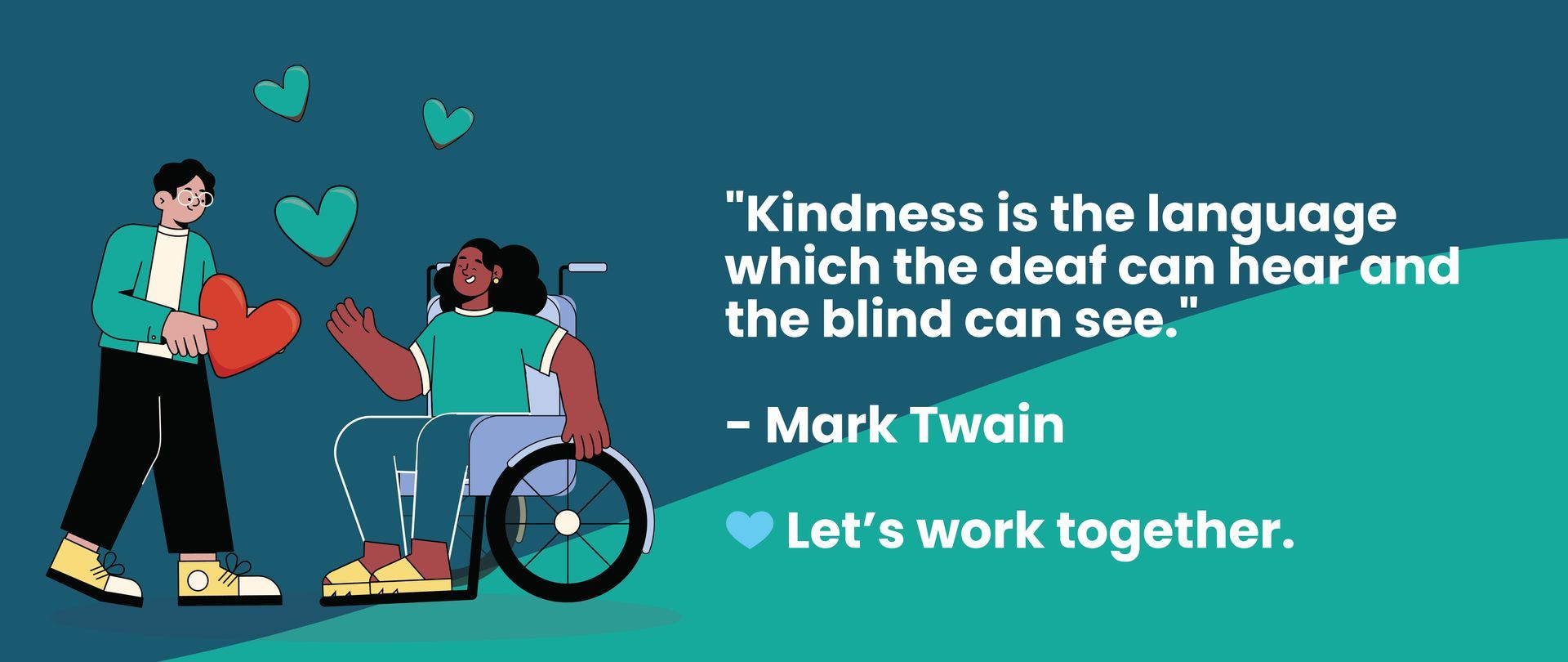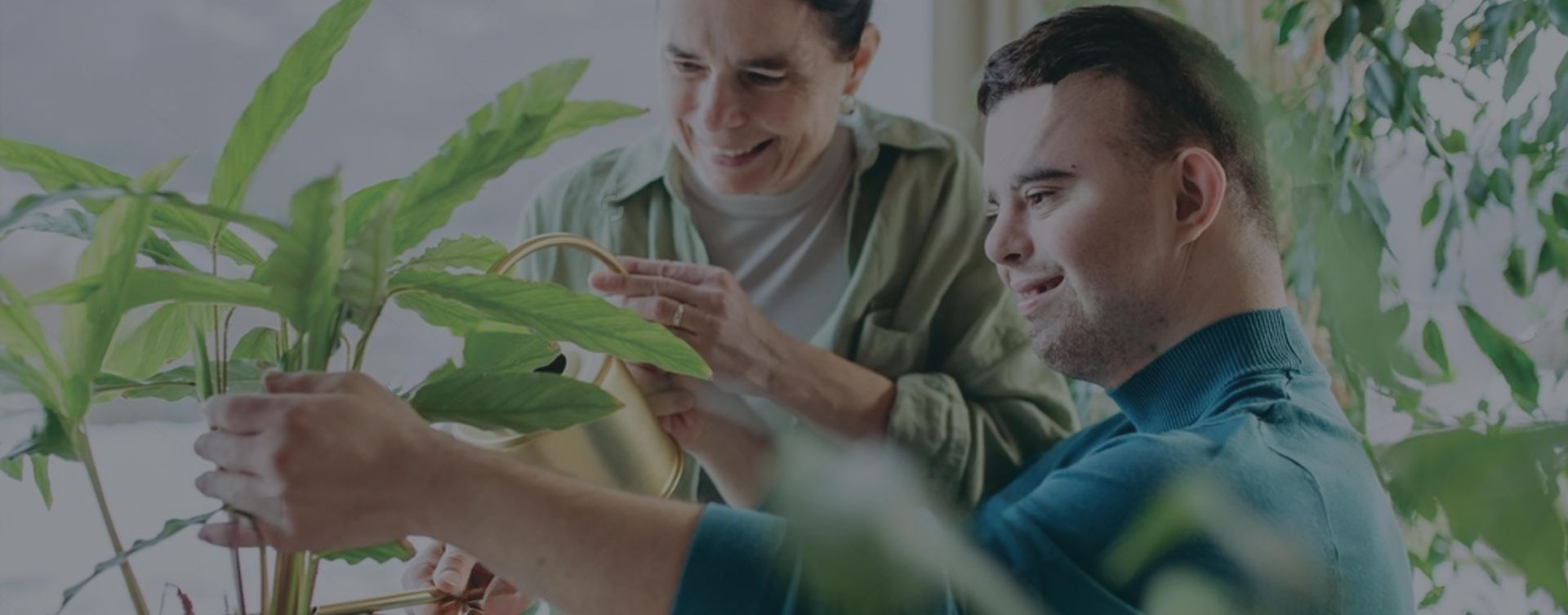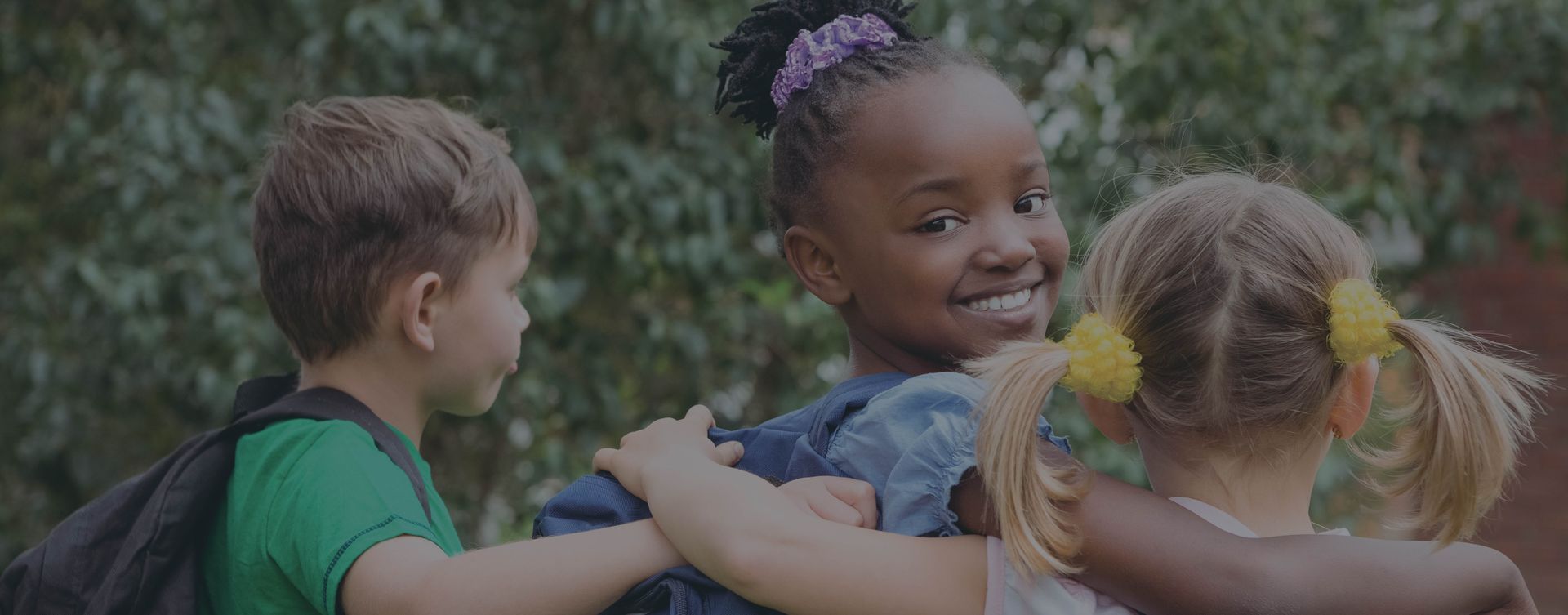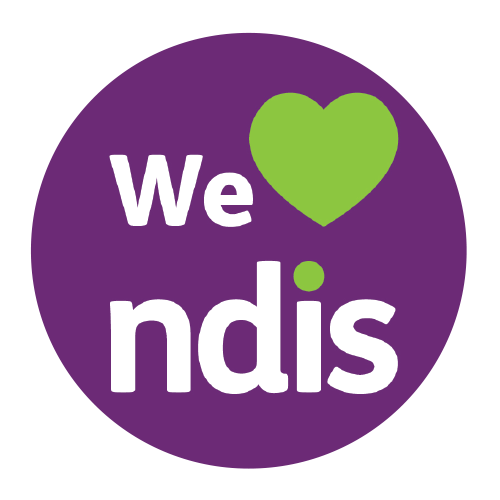This February, Let’s Celebrate Love for Everyone
February is the month of love, a time when hearts, chocolates, and roses take centre stage. But beyond the romance, the candlelit dinners, and the grand gestures, love is something far greater. It’s about kindness, inclusion, and making every person feel valued—regardless of their abilities, background, or circumstances.
In a world where differences too often divide us, true love lies in embracing everyone for who they are. This February let’s make a conscious effort to show love to all, especially those who often face barriers to acceptance—people with disabilities, those who feel unseen, and anyone who could use a little extra kindness.
Why Love and Inclusion Matter
Love is universal. It’s a language everyone understands, and yet, not everyone experiences it equally. For individuals with disabilities, life can sometimes feel isolating. Physical, social, and attitudinal barriers can create challenges that most people never have to consider. But when we choose love, we break down those barriers and create a more accepting, accessible world.
Love isn’t just about romance; it’s about seeing people, acknowledging their worth, and making them feel included. It’s about ensuring that no one is left behind, whether in friendships, workplaces,
or everyday life.
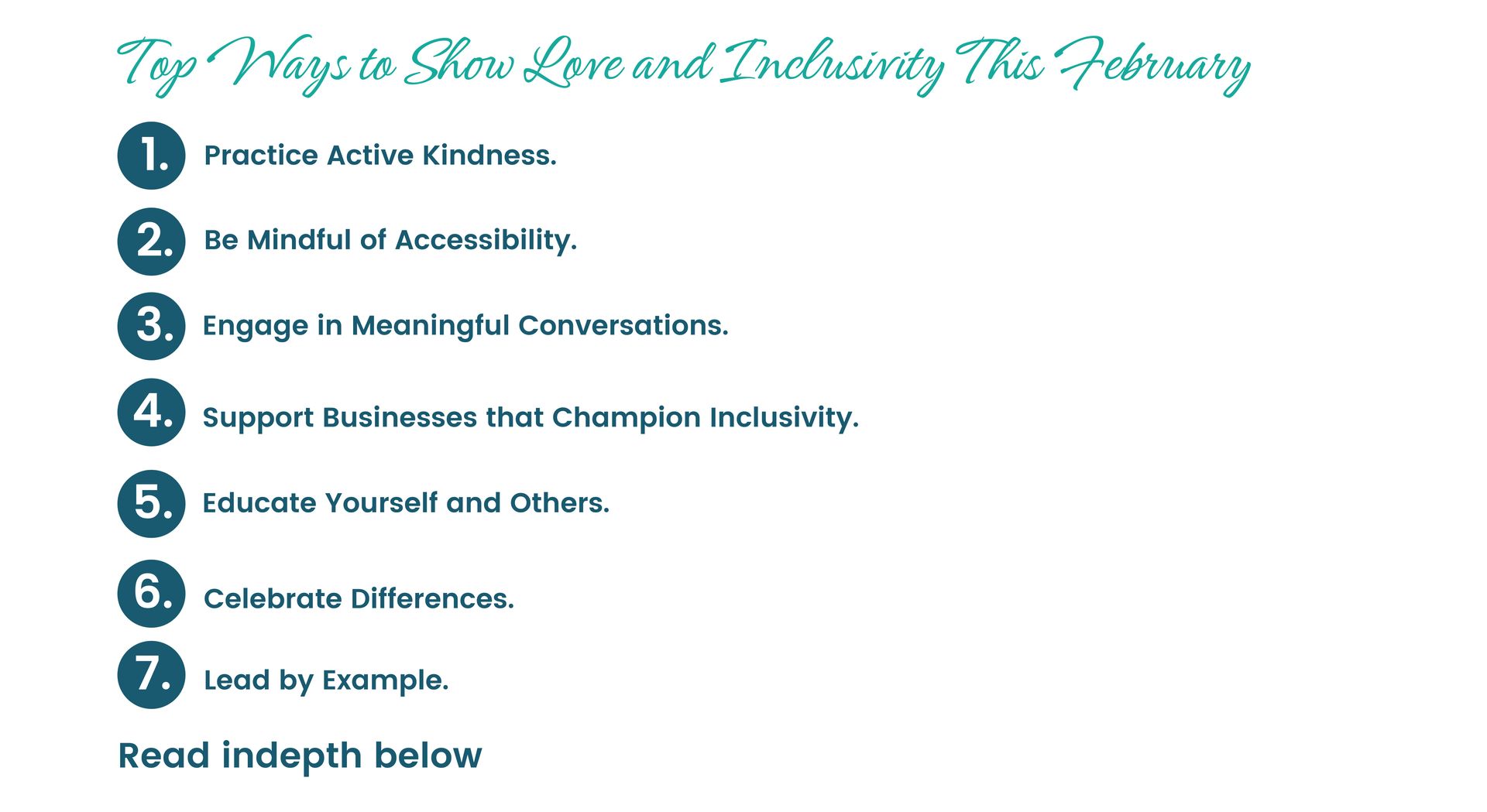
- Practice Active Kindness
Small acts of kindness can make a world of difference. Whether it’s holding the door open, offering a genuine compliment, or simply smiling at someone, never underestimate the power of making another person feel valued. - Be Mindful of Accessibility
When planning gatherings, events, or even casual outings, think about accessibility. Is the venue wheelchair-friendly? Are there accommodations for those with sensory sensitivities? Inclusivity is love in action. - Engage in Meaningful Conversations
Instead of avoiding conversations about disabilities, embrace them. Ask respectful questions, listen, and learn. People with disabilities, like everyone else, have dreams, talents, and unique perspectives that deserve to be heard and celebrated. - Support Businesses that Champion Inclusivity
Choose to support brands and businesses that actively promote inclusivity and accessibility. Whether it’s a local coffee shop with a diverse staff or a company that prioritizes accessible design, your choices can help shape a more inclusive society. - Educate Yourself and Others
Inclusion starts with awareness. Read about different disabilities, learn about accessibility issues, and share what you know with friends and family. The more we understand, the more we can create a world where love truly knows no bounds. - Celebrate Differences
Instead of merely accepting differences, celebrate them! Recognize and appreciate the strength, resilience, and perspectives that come from diverse experiences. Love is at its strongest when it’s inclusive. - Lead by Example
The best way to spread love and inclusivity is to model it yourself. Be the person who makes everyone feel welcome, respected, and appreciated. When others see kindness and acceptance in action, they’re more likely to follow suit.
Love is for Everyone
Love can be shown to everyone, and kindness is contagious if practiced every day. Teach others and our children to be kind and inclusive all year round—this is when it matters most. ❤️
